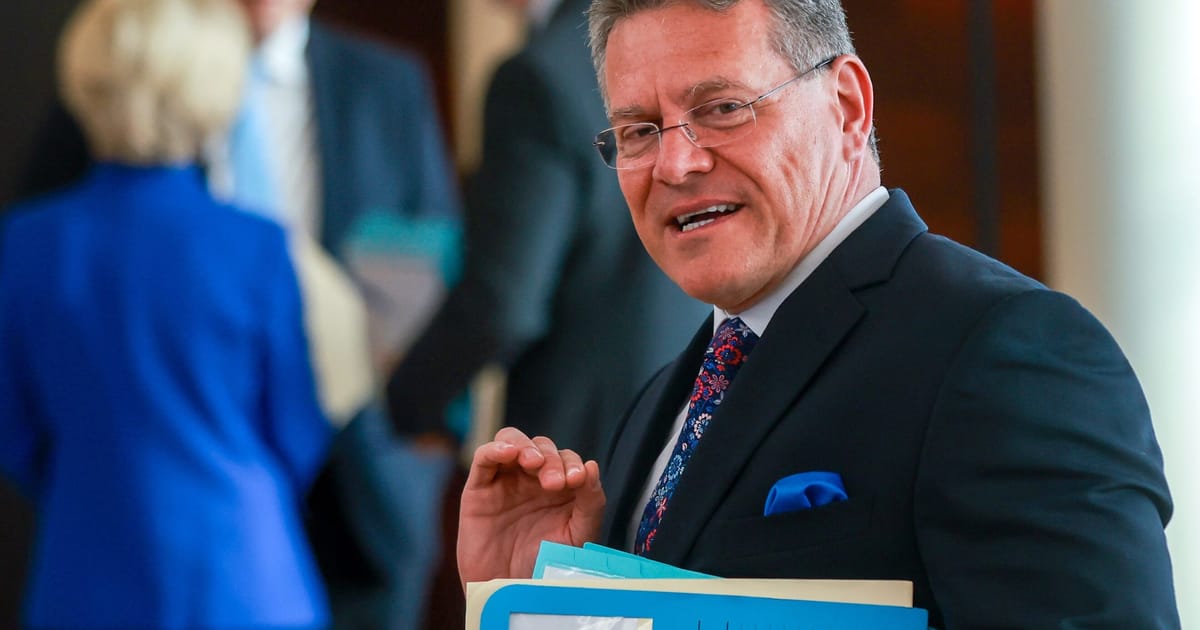

In an era marked by both challenges and opportunities, international dialogues continue to shape the socio-economic landscape across continents. This week was pivotal, with diplomatic and trade developments unfolding and cultural reparations being considered in several regions.
In Europe, all eyes are on the trajectory of trade relations between the European Union and the United States. The EU’s trade chief is set to visit Washington to navigate existing tensions over tariffs introduced by the former Trump administration. As Brussels contemplates the pace and strength of its response, the potential for retaliatory measures underscores the importance of diplomatic tact in fostering an environment of mutual growth and understanding. This approach highlights the diverse strategies nations employ to stabilize and enhance trade relations, while avoiding abrupt or excessively punitive measures.
The European landscape also witnesses the EU Parliament hinting at expanding bans on lobbyists, particularly those tied to the tech giant Amazon. The focus remains on addressing concerns regarding working conditions within Amazon’s warehouses, reflecting the broader intersection of economic growth, corporate responsibility, and employee welfare. Discussions indicate a growing commitment among European lawmakers to advocate for transparent and equitable practices, recognizing the importance of a balanced approach that respects both economic contributions and social accountability.
Meanwhile, in a historical development, France has shown a willingness to engage in reparative discussions with Niger regarding events from the colonial era. The French government’s readiness for dialogue, while stopping short of accepting outright responsibility, is a significant gesture toward acknowledging past grievances. This willingness to engage in provenance research and patrimonial cooperation with Niger reflects a broader shift toward reconciling historical injustices, illustrating how nations can work together to address past issues in a manner conducive to healing and understanding.
Away in the Pacific, relations between Australia and China present an interesting dynamic. Following incidents in which Australian media crews reportedly faced challenges in China, President Xi Jinping emphasized the importance of unwavering cooperation with Prime Minister Anthony Albanese. Despite global economic tensions and geopolitical challenges, both leaders are committed to fostering stable, cooperative ties, even amidst divergent views on sensitive matters like the Port of Darwin and tensions involving Taiwan. This effort highlights a commitment to diplomacy and pragmatic engagement, prioritizing collaborative ground amidst global complexities.
In Australia, ongoing engagements highlight a steadfast dedication to addressing domestic and international matters. With discussions centering on the need for continued vigilance against antisemitism and ensuring community safety, there is a clear focus on upholding values of tolerance and inclusivity. This highlights that at every level, from international diplomacy to internal social cohesion, nations are threading a path of mindful engagement, focusing on pragmatic, positive solutions.
These events collectively illustrate how nations navigate an ever-evolving global landscape. By emphasizing dialogue, cooperation, and a balanced approach to addressing both current issues and historical grievances, international actors are paving the way for more sustainable and harmonious relations. This mindful strategy not only ensures enduring partnerships but also cultivates a more resilient and interconnected global community, ready to face the challenges and opportunities of the future. As the world progresses, the balance of preserving history, fostering economic cooperation, and maintaining social justice remains central to creating a truly flourishing global society.
Source: {link}
